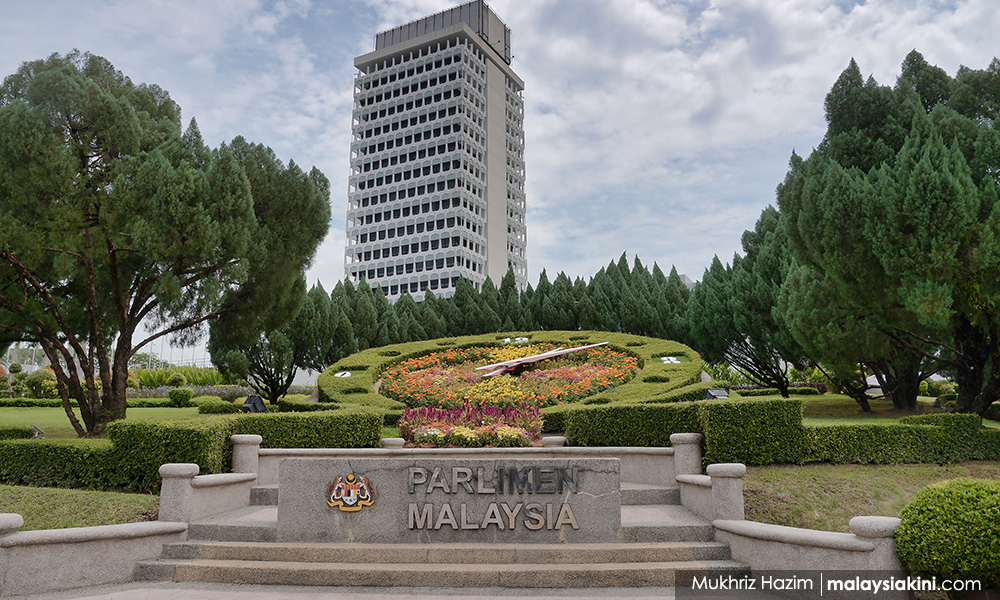LETTER | We, the civil society organisations working on statelessness and citizenship rights, wish to address the recent developments surrounding the proposed citizenship amendments by the Home Ministry.
The intended amendments will aggravate the incidence of statelessness in Malaysia.
We have communicated our concerns to the ministry and hope the issues we have raised will be considered especially, as they will directly affect Malaysian families.
Through a Facebook sharing of Home Minister Saifuddin Nasution Ismail at the recent monthly meeting with his ministry’s officers on Aug 22, it was conveyed that stakeholder engagement has taken place. The amendments will be presented to the Conference of Rulers for their consent in October.
We request the home ministry to conduct a two-way engagement to share the findings and views backed with verified statistical data from the consultations held with the various stakeholders.
This is important, to learn if the proposed amendments have been further amended to reflect on the concerns raised.
Civil societies and experts alike have confirmed that it will lead to the deterioration of the rights of stateless persons, especially among Malaysian families, as enshrined in the Federal Constitution.
We welcome the government’s commitment as seen in the progressive amendments allowing Malaysian mothers to confer citizenship to their overseas-born children.
Serious concerns
However, other amendments raise serious concerns, particularly those that pertain to:
1. Children born out of wedlock to Malaysian men
2. Stateless children adopted by Malaysian parent(s)
3. "Foundlings" – Abandoned children
4. Generational stateless children/persons
We firmly believe that every child has the inherent right to nationality and the protection that citizenship affords.
Regrettably, some proposed amendments seem to deviate from this fundamental principle, removing citizenship rights instead of statelessness safeguards, perpetuating the cycle of statelessness for vulnerable children/persons.
We call upon the Home Ministry to engage with various stakeholders, including civil society organisations and experts working on children's rights and statelessness.

Reconsider regressive amendments
Additionally, we urge the ministry to reconsider those regressive amendments at odds with the children's best interests.
Furthermore, we strongly suggest that the proposed amendments be approached with careful consideration and separation, considering each amendment's distinct nature.
Specifically:
1. The proposed amendments relating to children born overseas to Malaysian mothers should be allowed to proceed to parliamentary debates.
These changes reflect progressive and necessary adjustments that acknowledge the rights of Malaysian mothers and their children, and they deserve prompt attention.
2. However, the citizenship rights by operation of law and other limiting regressive amendments perpetuating childhood statelessness, which encompass a range of complex and sensitive scenarios, demands a more deliberate approach.
These amendments necessitate comprehensive research, a deep understanding of the issues, and broad stakeholder consultation.
We emphasise that these amendments should be deferred and only brought forward to Parliament after a thorough and sincere consultation with relevant stakeholders.
This approach will ensure that the fundamental rights of citizens are not unintentionally eroded and that the amendment genuinely addresses the needs of those affected.
Decoupled approach
In light of the gravity of the matter, we urge the Home Ministry to adopt this decoupled approach to the proposed amendments.
Such a measured and thoughtful strategy will not only uphold the principles of fairness and justice but also reaffirm the government's commitment to protecting and securing the rights of all children in Malaysia.
MCRA expresses its sincere gratitude for the commendable efforts undertaken by the Parliamentary Special Select Committee (PSSC) on women, children & community development and the PSSC on Human Rights, Election and Institutional Reform. This is in regard to actively engaging with various civil society organisations that share similar concerns.
As we move forward, we eagerly anticipate the opportunity to harness this engagement mechanism to address the critical matter of the proposed citizenship amendments effectively.
The statement is prepared by the Malaysian Citizenship Rights Alliance (MCRA) and endorsed by 18 organisations.
The 18 organisations are:
1. Advocates for Non-discrimination and Access to Knowledge (ANAK), Sabah
2. Association of Family Support & Welfare Selangor & Kuala Lumpur (Family Frontiers)
3. Association of Women Lawyers (AWL)
4. Bait Al Amanah (BAA)
5. Buku Jalanan Chow Kit
6. Development of Human Resources for Rural Areas (DHRRA), Malaysia
7. National Human Rights Society (HAKAM)
8. HaKita
9. IMAN Research
10. Johor Women's League (JEWEL)
11. Lawyer Kamek (Sarawak)
12. Malaysia Hindu Dharma Mamandram (MHDM)
13. Malaysian Collaborative Practice Group
14. Persatuan Pendidikan Bajau Laut (Iskul Sama diLaut Omadal)
15. Persatuan Untuk Anak Kita (PUAKPayong)
16. Stateless Malaysians Citizenship Movement
17. Voice of Children (VOC)
18. Yayasan Chow Kit (YCK)
The views expressed here are those of the author/contributor and do not necessarily represent the views of Malaysiakini.

